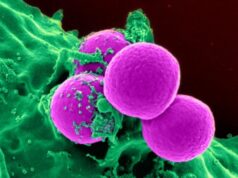As with most cancers, triple-negative breast cancer (TNBC) cells have abnormal amounts of chromosomes or DNA copy number aberrations (CNAs) in their genomes. A new study used single cell sequencing technology to provide previously unknown details about how and when CNAs impact tumor formation and growth, information that may have significant implications for diagnosis and treatment.
The research results, published in the Aug. 15 online issue of Nature Genetics, challenge the prevailing belief CNAs take place slowly and gradually over time. Instead, study findings revealed chromosomal changes occur in short, punctuated “bursts” at the earliest stages of tumor growth.
“The current model asserts CNAs are acquired gradually and sequentially over extended periods of time, leading to successively more malignant stages of cancer,” said Nicholas Navin, Ph.D., professor of Genetics at The University of Texas MD Anderson Cancer Center, and lead author of the paper. “Another model is punctuated evolution in which CNAs are acquired in short bursts of crisis, followed by stable clonal expansion that form the tumor mass. Our study suggests punctuated copy number evolution is common in TNBC patients.”
Navin’s study supports the “bursts” model and demonstrates the majority of CNAs are acquired at the earliest stages of tumor evolution. The discovery is important since most genomic studies have focused on a single point in time, after a tumor has been surgically removed, making it difficult to study the natural history of chromosome evolution during tumor growth.
The finding also indicated other cancers may demonstrate similar CNA behavior.
“Our preliminary data in cancers such as prostate, colon, liver and lung suggest a punctuated model of copy number evolution is also likely to be operative in other solid cancers,” said Navin. “This model has important implications for our evolutionary understanding of cancer growth dynamics and for the clinical diagnosis and treatment of TNBC patients.”
Find your dream job in the space industry. Check our Space Job Board »










